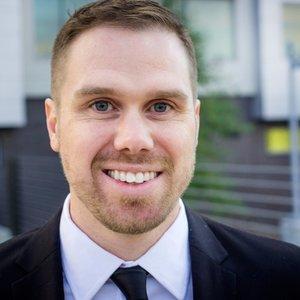In This Story

The Taliban’s reign in Afghanistan is not feasible long-term, said Charles Davidson, executive director of the Political Leadership Academy at George Mason University’s Carter School for Peace and Conflict Resolution.
“The Taliban is a group of warlords…they are not a government, they are not politicians,” Davidson said. “History shows that when warlords fill a political vacuum, it’s only a matter of time until that system breaks down, if they’re not able and willing to allow people who can govern to do their jobs properly.”
Countering the Taliban’s aggressions and achieving a more peaceful outcome will take a multifaceted strategy, he said.
“We have to get people out who we promised we would get out,” Davidson said. “We have to hold to those commitments not only for the safety of our own citizens and the citizens that we worked with in Afghanistan, which is primary, but for the sustainability of our trustworthiness as a nation going forward in foreign policy and diplomatic relations.”
The next step is to promote and protect the safety and security of human rights activists, journalists and others who are likely to be targets of the Taliban-led government, Davidson said, adding protests are likely to increase. “We have to continue to shine a light on their voices so that they’re not lost, and, should they be violently oppressed, that that doesn’t go unnoticed,” he added.
Global awareness could be a gamechanger, he said.
“The reason why the Taliban was able to do what they did the first time around is that no one paid a whole lot of attention,” Davidson said. “We’re accompanying a generation of people who are now educated, who have ideas for their own future—possibilities that were afforded them through keeping oppressive regimes at bay.”
The situation is likely to get much worse before it gets better, Davidson said, which is why the global community needs to support efforts aimed at maintaining their human rights.
“One way the Taliban had other people play into their systems was choosing particular groups to oppress,” he said.
It’s much easier said than done, Davidson said, but if Afghans can stand up for those who are oppressed and work toward a sense of equality rather than playing into systems of hatred and oppression, particularly if they are the ones who benefit, then that is going to slow the systems of power the Taliban is trying to impose.
“The Taliban has made a lot of promises, especially about the economy and women’s rights,” Davidson said. “As they’ve shown, they’re not going to make good on those promises, so we have to make sure we’re making decisions based on what’s best for peace-loving Afghans.”
Charles Davidson is executive director of the Carter School’s Political Leadership Academy and President of the nonprofit ForgottenSong. He earned his PhD in Conflict Analysis and Resolution from Mason in 2019, with a focus in Middle East Conflict. Davidson lived in Afghanistan in 2008-09.
For more information, contact Mariam Aburdeineh at 703-993-9518 or maburdei@gmu.edu.
About George Mason
George Mason University is Virginia’s largest public research university. Located near Washington, D.C., Mason enrolls 39,000 students from 130 countries and all 50 states. Mason has grown rapidly over the past half-century and is recognized for its innovation and entrepreneurship, remarkable diversity and commitment to accessibility. Learn more at www2.gmu.edu.
